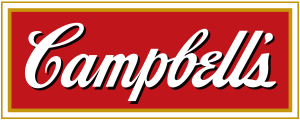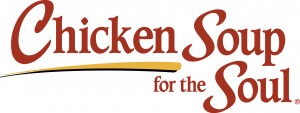Chicken Soup for the Soul Day is on November 12th. This is a day to sip on a nice piping hot bowl of soup and feel inspired.
However, it’s also an opportunity to learn a little lesson on trademark infringement. Though this day is a celebration of comfort and a relaxed you, we can touch on the reality of not being able to hide from trouble forever.
Here we have been gifted not only with the book series of motivational tales but also a very real trademark infringement experience from the Chicken Soup for the Soul Day publishers themselves.
The soup companies
What is the difference between Campbell’s Soup Company and Chicken Soup for the Soul Publishing LLC?
Campbell’s Soup Company is a global food company started in 1869 and headquartered in Camden, NJ with annual sales of more than $8 billion.
 Today, they are involved in the manufacture of Campbell’s soups, Swanson’s broths, Pepperidge Farm breads, Royal Dansk and Kjeldsens cookies, Prego sauces, Garden Fresh Gourmet salsas, dips and hummus, Bolthouse Farms beverages, V8 drinks and Plum organic baby food.
Today, they are involved in the manufacture of Campbell’s soups, Swanson’s broths, Pepperidge Farm breads, Royal Dansk and Kjeldsens cookies, Prego sauces, Garden Fresh Gourmet salsas, dips and hummus, Bolthouse Farms beverages, V8 drinks and Plum organic baby food.
Chicken Soup for the Soul LLC is a publishing, consumer goods and media company based in Cos Cob, CT. It’s known for the Chicken Soup for the Soul series of books.
 The first book consisted of inspirational true stories about ordinary people’s lives and became a major best-seller.
The first book consisted of inspirational true stories about ordinary people’s lives and became a major best-seller.
The company has also branched out into other categories such as food, pet food, and television and movie programming. Look out for the movie hitting theaters in 2016.
The infringement
Chicken Soup for the Soul Publishing formed an alliance in July 2012 with branding company Daymon Worldwide Inc. to produce a line of branded food products, including soup and simple meal products. They founded a jointly owned company named — Chicken Soup for the Soul Foods.
Chicken Soup for the Soul announced in an August 2012 press release it’s intent to offer a line of soup and other simple meal products through the same channels of trade Campbell employs, such as grocery stores, beginning in 2013. The pictured packaging featured a label and brand design that was confusingly similar to the design Campbell has used for its soup and related products.
In October 2012, Campbell Soup Company filed a trademark suit against Chicken Soup for the Soul Publishing LLC in New Jersey federal court for “willful trademark and trade dress infringement, false designation of origin, trade dress dilution, deceptive acts and practices, and unfair competition.”
In particular, Campbell’s alleged that:
- the defendant “directly copied the script ‘C’ and red coloring” from Campbell’s, along with the gold wave on the label.”
- Chicken Soup for the Soul has embarked on an unlawful campaign to lure consumers into purchasing their chicken noodle soup and related goods under the mistaken belief that such products come from, are sponsored by, or are associated or affiliated with Campbell Soup.
- Furthermore, Campbell says that after it contacted Chicken Soup for the Soul about the alleged infringement and agreed to hold off on a lawsuit while its rival developed alternate designs for its products, Chicken Soup for the Soul only made minor changes to its labels.
- Campbell asserted that the infringing design was weakening the goodwill that Campbell and its predecessors in interest have spent over 100 years cultivating for its world-famous soup brand.
The soup company asked the court to bar the use of what it claimed was an infringing label design, and for the recall and destruction of any promotional materials that would violate that order. The company also sought awards of money damages and profits related to the alleged infringement, together with attorney fees and litigation costs.
Campbell Soup Co. and Chicken Soup for the Soul Publishing LLC settled their trademark dispute, on Jan. 25, 2013. Terms of the accord with Chicken Soup for the Soul Publishing LLC. weren’t disclosed in the filing in federal court in Camden, New Jersey. It was however revealed that litigation costs and attorney fees weren’t awarded.
Tips to avoid trademark infringement
Trademarks (or brand names) are commercial source indicators. The longer they are used, the more valuable they may become. Marks can be words, slogans, logos, sounds, three-dimensional symbols or even scents! Emerging businesses can avoid trademark infringement by following these two tips:
- Be smart and original
Similar trademarks can cause consumer confusion. Nothing closely resembling another’s mark should be used. Unregistered marks and those registered with states sometimes bear a superscripted TM or SM. (SM means service mark.) Marks registered with the/U.S. Patent and Trade Office enjoy somewhat stronger and geographically broader protection. They should be indicated by the ® symbol. In no case does a junior user’s mark need to be identical for infringement. That requires only likely consumer confusion.
- Conduct an online search
Trademark searches are critical to keeping hard-won goodwill. First, internet “knock-out” searches should be done, using Google, for example. Marks that survive should also be checked against state and, certainly, against federal registrations and pending applications.
Conclusion
Trademark infringement can happen to any business, small or large. In your business startup, it’s important to protect your business ideas by consulting with a small business attorney.
If a positive result surfaces during the trademark search, businesses can consult a trademark attorney to weigh their options.

![[IPWatchdog Logo]](https://ipwatchdog.com/wp-content/themes/IPWatchdog%20-%202023/assets/images/temp/logo-small@2x.png)

![[Advertisement]](https://ipwatchdog.com/wp-content/uploads/2024/04/Patent-Litigation-Masters-2024-sidebar-700x500-1.jpg)

![[Advertisement]](https://ipwatchdog.com/wp-content/uploads/2021/12/WEBINAR-336-x-280-px.png)
![[Advertisement]](https://ipwatchdog.com/wp-content/uploads/2021/12/2021-Patent-Practice-on-Demand-recorded-Feb-2021-336-x-280.jpg)
![[Advertisement]](https://ipwatchdog.com/wp-content/uploads/2021/12/Ad-4-The-Invent-Patent-System™.png)






Join the Discussion
No comments yet.